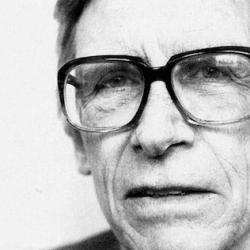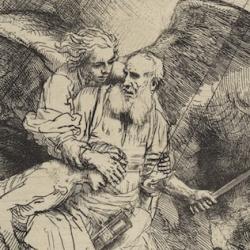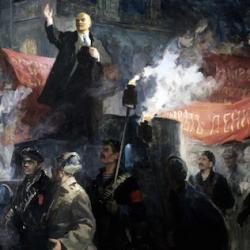Semyon Frank was a Russian emigre to London. Michael Burleigh (Sacred Causes, 39) sums up his life: “Born in 1877 into a Russian-Jewish family, he had quickly outgrown a juvenile Marxism, converting to Orthodox Christianity in 1912, on the ground that the Jewish God was as remote from the world as the utopia of socialist imaginings. He rejected a Russian-Jewish sympathy for messianic radicalism in favour of liberal conservatism too.”
More incisively than many of his contemporaries, Frank discerned the “nihilistic moralism of the Russian intelligentsia.” In one essay, he wrote of the religious zeal that motivated the Bolsheviks: “Sacrificing himself for the sake of this idea, he does not hesitate to sacrifice other people for it. Among his contemporaries he sees either merely the victims of the world’s evil he dreams of eradicating or the perpetrators of that evil . . . This feeling of hatred for the enemies of the people forms the concrete and active psychological foundation of his life. Thus the great love of mankind of the future gives birth to a great hatred for people; the passion for organizing an earthly paradise becomes a passion for destruction.”
The whole of Christian theology is there: A redeeming sacrifice that enables humanity to reach its eschatological Eden. It’s Christianity without Christ.
Sacrificial politics found a home elsewhere in Europe. Burleigh quotes the Spanish academic Jose Robles, writing in the 1930s: “We must reconquer Spain . . . We must give Spain a true unity, a new spirit, a totalitarian polity . . . It is necessary now to defeat socialism inexorably. We must found a new state, purge the fatherland of judaising freemasons . . . We must proceed to a new state and this imposes duties and sacrifices. What does it matter if we have to shed blood! . . . We need full power and this is what we demand . . . To realize this ideal we are not going to waste time with archaic forms. Democracy is not an end but a means to the conquest of the new state. When the time comes, either parliament submits or we will eliminate it” (131).















